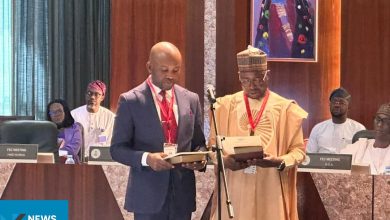Senate Uncovers Over $300 Billion Missing from Nigeria’s Crude Oil Revenue
The Nigerian Senate has raised alarm over $300 billion missing from crude oil proceeds.
Lawmakers blamed weak oversight and theft, calling for urgent reforms to protect national revenue.
The Nigerian Senate has expressed deep concern over the discovery of more than $300 billion in unaccounted crude oil proceeds, describing it as one of the largest economic losses in the country’s history.
The revelation followed the presentation of an interim report by the Senate Ad-hoc Committee on Crude Oil Theft, chaired by Senator Ned Nwoko of Delta North. According to the report, several billions of dollars in oil earnings between 2015 and 2024 remain unaccounted for, a situation the committee attributed to “systemic theft, weak oversight, and institutional failure.”
While presenting the report, Senator Nwoko highlighted key causes of the recurring losses, including poor measurement systems, sabotage within the oil industry, and a lack of coordination among regulatory and enforcement agencies. He stressed that urgent reforms are needed to close the gaps that enable large-scale revenue leakages.
Lawmakers at the plenary supported the committee’s findings but cautioned against any attempt by the legislature to directly recover stolen funds. They emphasized that such authority lies exclusively with the Executive arm of government.
Deputy Senate President, Senator Jubril Barau, also reminded the chamber that while the National Assembly has no constitutional power to retrieve missing funds, it can make formal recommendations to the Executive, leaving implementation at the discretion of the President.
Senate President Godswill Akpabio commended Senator Nwoko and members of the committee for what he described as a bold step toward transparency and accountability in the oil sector. However, he noted that the Senate would not deliberate on the committee’s recommendations or adopt any resolutions until the full report is submitted.
The missing funds, if confirmed, could represent one of the most significant financial discrepancies in Nigeria’s oil industry, reigniting debates over the need for stronger fiscal monitoring and stricter regulation to safeguard the nation’s economic resources.



